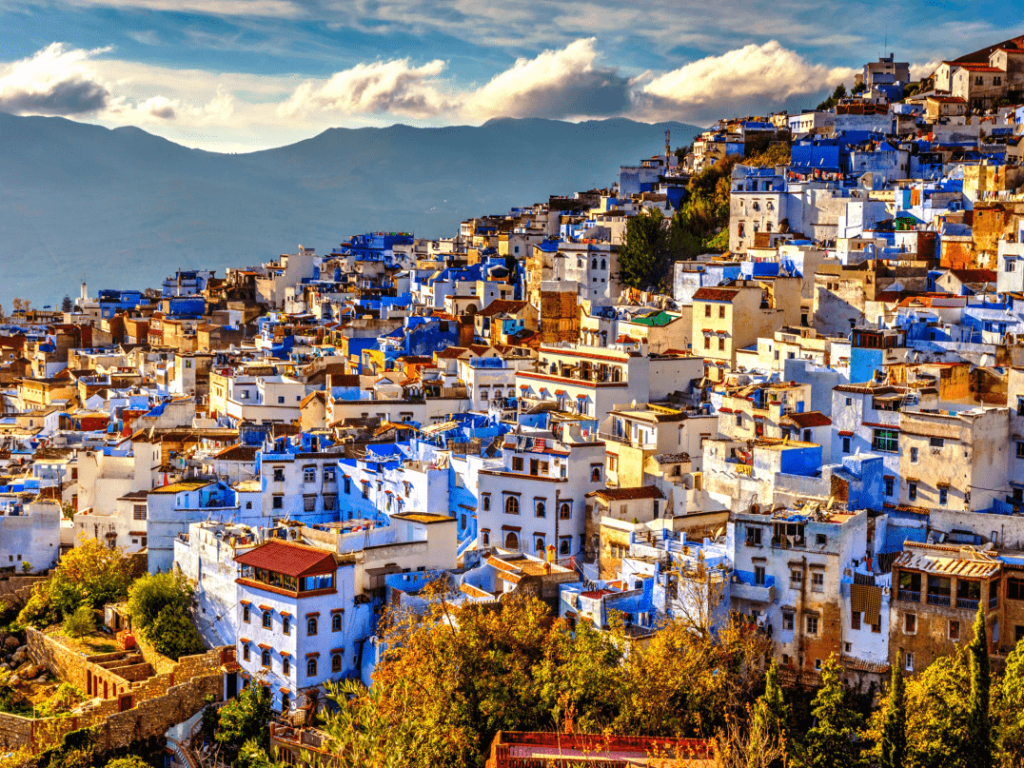Are you interested in exploring a rich and vibrant culture? If so, you must learn about Moroccan people and culture. Morocco is not just a tourist destination, but a mosaic of traditions, arts, and ancient history. In this article, we’ll take you on a journey to delve into every aspect of life in Morocco, from language and history to social customs and fashion.
Demographics and Social Structure in Morocco
People and Community (Population in Moroccan)
Moroccan society is known for its diversity and richness. The population in Morocco is over 37 million, with the majority living in large cities such as Casablanca, Marrakech, and Fez. The Morocco social structure is strong and cohesive, with the extended family playing a central role in individuals’ lives. The community, or al-jamāʿa, is highly valued, and people often rely on their neighbors and extended family for support, creating a strong social safety net.
Language and Communication Styles in Moroccan
Modern Standard Arabic is the official language in Morocco. However, in daily life, Moroccans speak a specific Moroccan dialect known as “Darija.” This dialect is famously difficult for other Arabic speakers to understand due to its unique phonology and vocabulary, which is a mix of Arabic, Amazigh, French, and Spanish.
- Languages: Arabic (Darija), Amazigh (Berber), and French are widely spoken.
- Communication Styles: Moroccans prefer friendly and direct communication. When greeting, they often use phrases like as-salām ʿalaykum (peace be upon you) and kīf al-ḥāl (how are you?). Eye contact is valued as a sign of honesty, and a handshake is a common form of greeting.
History and Policy
Moroccan history is very rich, having been influenced by many civilizations.
- History in Moroccan: Since ancient times, Morocco has passed through many periods. Two of the most influential dynasties were the Almoravids and the Almohads in the 11th and 12th centuries. They established a powerful empire that influenced a large part of North Africa and Spain, leaving behind a legacy of magnificent architecture and intellectual achievement that is still visible today.
- Policy in Moroccan: Morocco is a constitutional monarchy, headed by the King, who is both the head of state and a spiritual leader. The government operates on a blend of traditions and modern laws, creating a unique system of governance.
Religion and Holidays
Religion is an integral part of daily life.
- Religion in Moroccan: Islam is the official religion in Morocco, and Islamic values play a significant role in guiding social norms.
- National Holidays in Moroccan and Religious holidays in Moroccan: Moroccans celebrate many holidays.
- Religious Holidays: Such as Eid al-Fitr (celebrating the end of Ramadan) and Eid al-Adha (the Festival of Sacrifice). These are major celebrations that bring families together.
- National Holidays: Such as Independence Day and Throne Day, which celebrate the country’s national identity and history.
Etiquette and Food
- Etiquette in Moroccan: Generosity and hospitality are among the most important Moroccan traits. When visiting someone’s home, it is polite to bring a gift, and it is customary to accept food and drink when offered. A high pour of mint tea, for example, is a sign of respect and hospitality.
- Food in Moroccan:
- Cuisine: Moroccan cuisine is famous for its delicious dishes such as couscous and tagine, which are served in every home. Couscous is a staple grain dish, while tagine is a slow-cooked stew named after the unique conical pot it is cooked in. Both dishes are known for their rich spices like saffron, ginger, and turmeric.
- Drink in Moroccan: Mint tea is the national drink. Serving tea to guests is a sign of great generosity and hospitality. The ceremony involves a specific pouring method from a high distance to create a layer of foam on top of the glass.
Art and Culture
Moroccan culture is unique and diverse.
- Music in Moroccan: Moroccan music is characterized by its diversity, from traditional Amazigh music, which often uses call-and-response storytelling, to the spiritual rhythms of Gnawa music, which has its roots in Sub-Saharan African traditions.
- Literature in Moroccan: Moroccan literature has a long history, including poetry and stories that reflect the life of the people. Famous writers like Tahar Ben Jelloun and Laila Lalami have gained international acclaim for their works.
- Carpets, Dress and Jewellery in Moroccan:
- Carpets: Moroccan cities are famous for their beautiful, handmade carpets. Berber rugs from the Atlas Mountains, for example, often feature abstract geometric patterns that tell stories about the weaver’s life and beliefs.
- Dress: The jellaba is the traditional dress for men and women. It is a long, loose-fitting robe with a hood, worn for comfort and modesty. On special occasions, women also wear the kaftan, a more elegant, intricately embroidered dress.
- Jewellery: Silver and gold jewelry are an important part of the traditional dress, often with intricate designs that reflect tribal identity.
Famous Moroccans
There are many famous Moroccans in art, sports, and literature. Among them are the famous football player Hakim Ziyech, the actor Jamel Debbouze, and the writer Tahar Ben Jelloun, who won the Prix Goncourt.
Conclusion
Moroccan people and culture are a wonderful blend of tradition and modernity. Understanding these aspects is key to a deeper appreciation of this country. You can start your journey of learning the Arabic language and Moroccan culture with the Kaleela app today!



